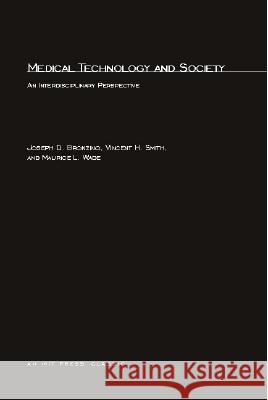Medical Technology and Society: An Interdiscipinary Perspective » książka
Medical Technology and Society: An Interdiscipinary Perspective
ISBN-13: 9780262521543 / Angielski / Miękka / 1990 / 584 str.
Medical Technology and Society is a thought-provoking examination for nonspecialists of medical technology and the social and moral issues arising from it. The book describes the evolution of medicine from turn-of-the-century general practice with its few surgical techniques and scarcity of effective drugs to today's complex hierarchical delivery systems involving advanced science, sophisticated equipment, and a multitude of highly specialized personnel. The knotty economic and ethical questions that have accompanied this dramatic change are identified and discussed, enhancing our understanding not only of the science, the machinery and the organization of modern medicine but also of its origins, its social context, and its alternative futures.Introductory chapters outline the major developments since 1900. The authors then examine the technological bases of some of the most important innovations in medical technology and analyze the economic and ethical issues surrounding them. Topics include cardiovascular technology -- pacemakers, defibrillators, and artificial hearts; critical care technologies -- resuscitation and life-support devices; and medical imaging methods -- ultrasound and computed tomography. Human experimentation, artificial prolongation of life in extreme situations, fair access to the technologies, and cost are discussed side by side with presentation of scientific and technical material. The computerization of diagnostic systems and patient records is considered along with issues of liability and privacy.A concluding chapter takes up such topical issues as spending on acute care at the expense of preventive care, the starving of basic research to feed applications development, and the dehumanizing effect on patients of highly technical medical practice.Joseph Bronzino and Maurice Wade are members of the faculty of Trinity College, Hartford, Connecticut; Vincent Smith is Professor at Montana State University. Medical Technology and Society is included in the Alfred P. Sloan Foundation sponsored series, the New Liberal Arts.











